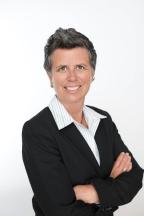Today in the first part of a two-part interview SevenPonds speaks with Kathryn A. Stebner, Principal and Attorney at Law of Stebner and Associates. Based in San Francisco, Stebner received her B.A. in Political Science from University of Oregon in 1982 and her J.D. from University of San Francisco in 1985. Her firm focuses on a wide range of elder abuse areas, including neglect, financial and estate planning. Today she discusses her firm’s specialties in regards to elder abuse areas, what led to her decision to pursue elder abuse law and her personal approach to handling her clients’ cases.
Zoë: Who are Stebner and Associates and what do you specialize in?
Kathryn: We are a law firm who brings cases against long-term health care facilities for the neglect of elders. We do both individual and class action lawsuits. We also do cases involving financial abuse. Having recently added estate planning to our services, we have become a full-service law for elders and their families.
Zoë: What areas of elder abuse law do you specifically focus on?
Kathryn: First, we focus on physical abuse, such as rape and molestation, bedsores, choking, falls, burns and overall neglect in nursing homes and assisted living facilities. Number two, we do class action lawsuits against nursing homes and assisted living facilities for misrepresentation and low staffing. We also do class action lawsuits of financial elder abuse against institutions. Next, we do individual financial elder abuse cases with a focus of bringing cases against institutions and sometimes between family members. Lastly, we do estate planning for elders and their families to help them take control of their own lives in a partial attempt [to make sure] that abuse doesn’t happen to them in the future.
Zoë: Why did you choose to get into elder abuse law?
Kathryn: My parents were very young when they had me, so I grew up with my grandparents and most of my great-grandparents living very closely to me in Salem, Oregon. They were my only babysitters. I like old people. I love talking to them and listening to their stories. I really don’t like the way we live in an ageist society. People should be revered for their age, not looked down upon.
“I really don’t like the way we live in an ageist society. People should be revered for their age, not looked down upon.”
Zoë: Given the sensitive and traumatic situations that your clients face, what is your personal approach to handling their cases?
Kathryn: First of all, almost all of my clients are demented or dead. Many times, the clients I have contact with and work with are family members. Family members often feel guilty and responsible. They feel that they should have done more or should not have put them in the facility. My first job is to say that it’s not their fault. It’s the fault of the facility. The next thing I do? I tell them that, in my opinion, lawsuits bring about change. I tell them that they are not just helping their family members, but that they’re helping to change society for good and that they should be proud of that.
“Family members often feel guilty…My first job is to say that it’s not their fault. It’s the fault of the facility.”
Lastly, I tell them that unfortunately what happened to their family member is all too common. At my firm that’s why we bring class action lawsuits against organizations. We work with nonprofits to support legislature regarding elder issues. A lawsuit is one piece of the puzzle to making changes for the better. Everyone that comes to me says they don’t want this to happen to anyone else. We don’t just try to get compensation for families. We also try to get facilities to make changes to their policies and to train their employees. I believe the reason a lawsuit is so important is that the only thing that will make our society change is money — because institutions don’t want to lose profits. I am convinced of that.
Join us next Saturday for part two of Kathryn’s interview when she will discuss how family members can help their loved ones when they have been victims of sexual abuse in assisted living facilities. She will also share some personal stories as well as words of wisdom for those interested in learning more about how they can help victims and their crusaders.

 What is Elder Abuse Law? An Interview with Kathryn A. Stebner, Part One
What is Elder Abuse Law? An Interview with Kathryn A. Stebner, Part One




 Forest Bathing Eases Grief by Soaking in Nature
Forest Bathing Eases Grief by Soaking in Nature
 The Spiritual Symbolism of Cardinals
The Spiritual Symbolism of Cardinals















